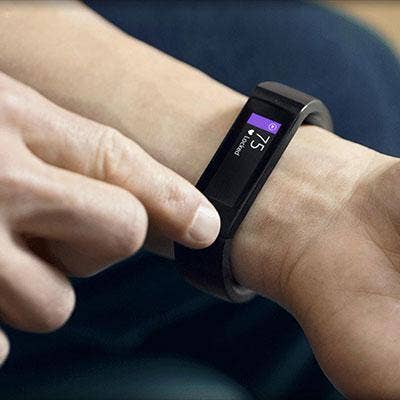Robo-Bosses? Virtual Personal Assistants? Gartner Predicts The 10 Biggest Ways Smart Machines Will Change IT

All Hail The Smart Machine
Algorithms and smart machines have redefined how humans will interface with technology in the coming years, according to Gartner.
The technology research firm has predicted the 10 most significant ways robotics, artificial intelligence and smart machines will transform IT in the next five years, paying particular attention to the role social, mobile and cloud technologies will play in driving these changes.
Brent Yax, CEO of Troy, Mich.-based solution provider Awecomm Technologies, spoke with CRN about these predictions, weighing in on which are actually taking hold in client workplaces and which are wishful thinking. Read on to learn about how automation, analytics and the Internet of Things will facilitate new business for partners.

10. 95 Percent Of Cloud Security Failures Will Be The Customer's Fault Through 2020
Only a small percentage of the security incidents impacting large businesses in the cloud have been the provider's fault, Gartner found. That's because the cloud can make it easier for naive users to leverage poor practices, resulting in widespread security or compliance failures.
The secure use of public cloud requires explicit effort from customers, with Gartner projecting that more than half of businesses with 1,000 users will leverage cloud access security broker products to monitor and manage their use of Software-as-a-Service.
Awecomm Technologies' Yax agreed that the vast majority of data and security issues in the cloud are driven by customers either deleting data or automating tasks incorrectly.

9. 40 Percent Of Mobile Interactions Will Be Facilitated By Virtual Personal Assistants By 2020
Virtual personal assistants (VPAs) and other smart agent technologies will monitor user content and behavior to build and maintain data models that can draw inferences about people, content and contexts, according to Gartner.
Based on this information-gathering, Gartner said VPAs can predict the user's needs, build trust and act autonomously on the user's behalf.

8. 2 Million Employees Will Be Required To Wear Health And Fitness Tracking Devices By 2018
Police officers, firefighters, paramedics and other emergency responders will be required to use wearable devices that monitor their health and fitness, according to Gartner.
Employee heart rates, respiration, stress levels and potential stress levels will be remotely monitored, Gartner said, with help sent immediately if needed. Professional athletes, political leaders, airline pilots, industrial workers and remote field workers also could be required to wear health and fitness monitors down the road, Gartner predicted.

7. Customer Digital Assistants Will Recognize Individuals By Face And Voice By 2018
Customer digital assistants will soon be able to mimic human conversations, capable of listening and speaking, providing in-the-moment context, timing and tone, offering the ability to respond, and leveraging a sense of history, Gartner said.
Customers are interested in adopting facial and voice recognition techniques to help sift through increasingly large amounts of information, choices and purchasing decisions, according to Gartner. Large businesses have become increasingly interested in deploying customer digital assistants to help facilitate continual company and customer conversations, Gartner said.

6. 45 Percent Of The Fastest-Growing Companies Will Have More Smart Machines Than Employees By 2018
The speed, cost savings, productivity improvements and ability to scale smart technology for specific tasks offer dramatic advantages over the recruiting, hiring, training and growth demands of human labor, according to Gartner.
Startups and other newer companies likely will leverage smart machine technologies more rapidly, Gartner said, as existing companies are burdened with large amounts of legacy technologies and processes.
The SMB market is investing a lot of time and money into defining and automating organizational processes to eliminate any human-made barriers to growth, according to Awecomm Technologies' Yax.
"The focus is on growth without new employees," he said.

5. 20 Percent Of Smart Buildings Will Have Suffered Digital Vandalism By 2018
Smart buildings will be vulnerable to attack due to inadequate perimeter security, Gartner predicted, with the exploits ranging from defacing digital signage to plunging whole buildings into prolonged darkness.
Although digital vandalism is more of a nuisance than a threat, Gartner said it can still present economic, security, and health and safety challenges. Going forward, smart building products should offer acceptable levels of protection and hooks for integration into security monitoring and management systems.
Digital vandalism is fairly rampant already, according to Yax, and will continue.

4. More Than 3 Million Workers Will Be Supervised By A 'Robo-Boss' By 2018
"Robo-bosses" will increasingly make decisions that previously could have only been made by a human manager, Gartner said, monitoring worker accomplishment and evaluating performance through measurements directly tied to output and customer evaluation.
Smart machine managers can consume these measures more effectively and swiftly than humans, Gartner found, and use them to inform staffing decisions and management incentives.
Although Yax is familiar with workers being held accountable to productivity dashboards and automated numbers, he hasn't seen anything approaching the level of robotic supervisors.

3. 5 Percent Of Economic Transactions Will Be Carried Out By Autonomous Software Agents By 2020
Algorithmically driven agents are already participating in the global economy, Gartner found, but are today directly tethered to a robust collection of human-controlled mechanisms.
But in the soon-to-come programmable economy, autonomous software agents will be productive without any human intervention, greatly disrupting the existing financial services industry. Gartner predicted that transparent, open-source algorithms will be capable of carrying out financial tasks ranging from banking and insurance to exchanges and crowdfunding.

2. 6 Billion Connected Things Will Be Requesting Support By 2018
Solution providers need to begin viewing "things" as customers of services, Gartner said, developing mechanisms to respond to the growing number of support requests communicated directly by things.
These response strategies will be distinctly different from traditional human-centric communication, Gartner predicted, spawning entirely new service industries.
Yax has definitely seen more smart devices request support through automated triggers or alerts.
Supporting smart devices requires a ton of time, Yax said, since a single issue can cause 10,000 devices to act oddly. Since there's no way to engage with a person in these situations, Yax said solution providers must be able to diagnose problems on the fly by looking through logs or systems.

1. 20 Percent Of Business Content Will Be Authored By Machines By 2018
Automated composition engines with the ability to assemble information and turn data-based content into natural language writing are fostering a movement from human- to machine-generated business content, according to Gartner.
Materials such as shareholder reports, legal documents, market reports, press releases, articles and white papers are all candidates for automated writing tools, Gartner predicted.
But Yax disagreed, saying that automation has been primarily contained to back-end processes with personalized communication remaining the norm for content development.
Google algorithms reward content created by people since it tends to be more interesting, Yax said, with machine-generated content dropping lower since it doesn't have as much public value.